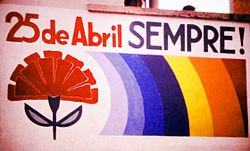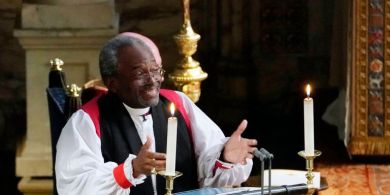This morning at TGIF Nduluma Mwaba led us in a discussion of the values of Wakanda, as seen in the film Black Panther. Wakanda is a fictitious country somewhere in Africa, and Black Panther is a comic book superhero who is the alter ego of the king of Wakanda.
We hadn’t seen the film, so thought we had better see it before this morning’s talk, so we rushed off to see it yesterday afternoon.
The talk was billed as Nduluma Mwaba speaking on The Wisdom of Wakanda, and the blurb read:
“Black Panther” has smashed box office records. And while it has been seen
largely as a black movie (whatever that means considering that films with
predominantly white actors aren’t punted as “white movies”), the
philosophical tapestry and ideological themes in this movie are universal
and common to our humanity.
Nduluma Mwaba will examine some of these themes and ask some pertinent
questions around our humanity, our duty and our values. He will seek to
“tap into the wisdom of Wakanda” – the fictitious country in which the
movie is set. Nduluma’s background is in Chemistry and Economics, and he
holds a keen interest in philosophy as a gateway to human freedom and
growth.
Neither of us is too keen on superhero films, so we hadn’t seen this one. We’re not great moviegoers. I think the last time we went to a sit-down movie house was in 2010, when we went to see
The Voyage of the Dawn Treader (
my review here). Val said she would rather see
A Wrinkle in Time, which we had discussed at our neoinklings literary coffee klatsch, and so would I, but that wasn’t what was being discussed at the meeting tomorrow.

T’Challa, the recently enthroned King of Wakanda and the Black Panther
So we went searching on the Internet to see if it was still showing in Pretoria, and where, and how much it would cost (surely the price had gone up since 2010?). In the course of my search I found a review
Black Panther has duped us all, which I read, and I suppose predisposed me to see the film through its spectacles. Its verdict was that
Black Panther denigrated the armed struggle and promoted neo-liberal values.
Anyway, we found where the film was showing, and went to see it, and enjoyed it. Not the best film I’ve ever seen, but not the worst either. The three dominant impressions after seeing it were
- the obligatory car chase
- the CIA man comes to the rescue — after being rescued himself
- Val noted that it was one of the few American films she had seen where the chief villain spoke with an American accent and the good guys didn’t.
Warning: there may be some spoilers in what follows
So this morning went to TGIF where Nduluma Mwaba spoke about the film and some of the moral and ethical issues it raised. Only about half the people there had actually seen the film, and we were glad we had been because it would have meant far less to us if we hadn’t.

Nduluma Mwabe speaking at TGIF on “The Wisdom of Wakanda”
One of the points he raised, which had not occurred to me, was that the herb that turned the king of Wakanda into the superhero Black Panther gave him not just superhero powers but supernatural powers. That takes it a stage beyond the standard superhero model, the self-effacing Clark Kent who changes into his costume in a telephone booth to become Superman. It has connotations of divine kingship, the god-king.
Superman’s day job is a journalist. Black Panther’s is ruling a nation. The notion of divine kingship has echoes of the Roman religion of emperor worship. When we were talking about it afterwards Nduluma mentioned a recent visit to Rome, and how he felt the vibe of ancient power and ancient pagan religion that permeated the place.
Another issue he mentioned was that if you have something special, like vibranium, do you protect it or do you share it? Some saw it as an analogy for gold, and saw Wakanda as South Africa, being exploited by foreigners as the traditionalist Wakandans feared. I saw it more as an image of something like nuclear power. It’s OK to share it with favourites, like Israel, but not with Iran and North Korea.
But even more vibranium is a
McGuffin, like the ring in
Lord of the Rings, and represents power and its uses, and who controls its uses. This forms the theme of both Tolkien’s book and this film.
Then Nduluma mentioned the question of duty. At one point in the film the general of the king’s guard, when asked to help overthrow the usurper when the real king returns, says that her loyalty is to the throne regardless of who sits upon it. And that relates to the unwritten rule in democratic societies, that the military should be above party politics, and should serve the state regardless of which party is in power.

The appeal to her immediately made me think of the
Portuguese coup of 1974, which brought about the end of the Salazar-Caetano dictatorship, and led in turn to the liberation of Mozambique and Angola from colonial rule. The image of Portuguese soldiers with flowers in their gun barrels, saying that they were no longer prepared to fight the Portuguese dictatorship’s colonial wars for it, was a powerful one, but the balance is a fine one, and which side carries the most weight? Tanya Pretorius saw the same scene from a feminist point of view — that the general was a woman, and so the scene represented patriarchy putting women in a bad light. But I didn’t see it that way; there were plenty of male villains in the film as well.
Another guy, Shingai Ngara, commented that he found the film too American, and found it rather insulting to Africans. At the end it shows the king of Wakanda going to America to do good to Americans, but not doing good to the African neighbours of Wakanda.
Nduluma also spoke of the politics of power, and said that the lion did not have its claws out all the time. It showed its claws only when it was needed. This struck me as particularly topical. Yesterday Tony McGregor had posted a link on Facebook to an
article that reported Trevor Manuel as saying that Jacob Zuma’s presidency had been an unmitigated disaster. And almost all the comments on this in Facebook had been critical of Trevor Manuel for failing to do what the Americans call “virtue signalling”, and denouncing the evils of Zuma all the time, like a lion never sheathing its claws. But if he, and others who felt the same way,
had done that, they would have had to leave the ANC altogether, and Zuma would still be president today, and firmly entrenched, because those who opposed him would have been neutralised. Instead they kept quiet and worked behind the scenes to recapture the captured ANC, branch by branch.
So there are two levels at which one can see Black Panther the film. One is at the level of cinematic techniques. There are the cliches, like the car chase, the casino scene, the battle scenes. The last, in particular, revealed the comic book origins of the story, with the BLAM! and KERPOW! of the speech bubbles being translated into visual effects.
And then there is the more expansive level of the moral issues and dilemmas faced by the characters. Vera Marbach commented that there is nothing in a film that is not intended to be there, and pointed out that there was a cameo role for the head honcho of Marvel Comics, where the King of Wakanda wins at the casino, and leaves, leaving his winnings behind on the table. And this character gathers up all the king’s chips and says “I’ll take care of these.” Very telling.
But is everything intended? I’m not sure.
I return to the CIA man.
On the surface, it seems a transparent attempt by Hollywood to plug the CIA as the good guys, apparently opposed to the usurper king, Killermonger, who wants to solve all problems in the world, or at least those that affect black people, by military means. In real life, of course, that is the role of the CIA, fomenting wars and engineering coups all over the world. Instead of being a last resort, the US, in particular, seems to look very quickly for a military solution.
But, if one looks below the surface, could there be satire behind it? In the last battle, the CIA man is pictured as a drone pilot, shooting down aircraft that presumably belong to the Wakandan air force, by remote control. That’s got to be satire, hasn’t it?
And at another level, too, could it be satire on the US policy of using surrogates that it controls to fight its battles for it, the “good guy” rebels that it arms and supports to bring about regime change in countries that do not jump to its commands.
Is it satire at this level?
Or is it just naive realism?





















